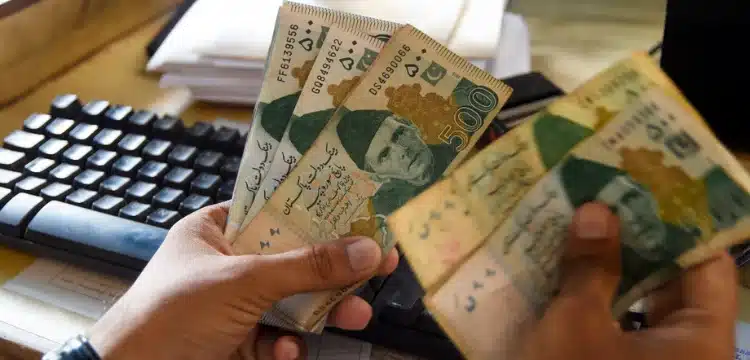[vc_row][vc_column][vc_column_text dp_text_size=”size-4″]The International Monetary Fund criticised Pakistan’s budget as insufficient to achieve the aims of its bailout programme, indicating that a deadline to unlock funds this month will not be met. The value of the country’s dollar bonds fell.
The tax policies in the new budget, which was unveiled last week, miss “an opportunity to broaden the tax base in a more progressive way, and the long list of new tax expenditures further reduces the fairness of the tax system,” said Esther Perez Ruiz, the IMF’s resident representative in Pakistan, in a statement.
“The new tax amnesty runs counter to the program’s conditionality and governance agenda, and it sets a dangerous precedent,” she said. The IMF is ready to collaborate with Pakistani authorities to improve the budget before it is passed.
The Washington-based lender’s complaint comes as the latest evaluation of a $6.7 billion loan programme approaches its June 30 deadline. While the government has vowed to cover billions of dollars in debt obligations, payment risks are increasing, with Moody’s Investors Service warning this week that Pakistan could fail if an IMF programme is not implemented.
“It’s looking increasingly unlikely that Pakistan will secure IMF funding before the current programme expires,” Patrick Curran, a senior economist at Tellimer in Portland, Maine, said. “A default is likely if Pakistan cannot quickly reach a new agreement with the IMF within the next few months.”
Also Read: Japan’s exotic desert is disappearing.
Bond Tension
In Asian trade on Thursday, the country’s $1 billion bond due in April next year fell to around 55 cents on the dollar, the lowest in nearly two weeks. The South Asian country faces almost $23 billion in external debt payments for the fiscal year that begins in July.
Pakistani officials defended the budget, claiming that the government is seeking some relief to aid the country’s economic recovery.
“We don’t want to take any step that takes us away from stabilisation,” Aisha Ghaus Pasha, Junior Finance Minister, told reporters in Islamabad on Wednesday. “While remaining in stabilisation mode,” she said, “we seek a breathing space” to boost economic development.
Aid has been halted as the IMF demands stricter economic policies, which are proving politically difficult in light of the upcoming elections. Meeting a $2 billion finance imbalance and revising the exchange-rate policy are also major challenges.
“This budget is clearly unacceptable to the IMF,” said Uzair Younus, director of the Atlantic Council’s South Asia Center’s Pakistan Initiative. “Given the political constraints in Islamabad, it will be extremely difficult for the government to meet the IMF’s expectations with only a few days left in the programme.”
[/vc_column_text][/vc_column][/vc_row]











